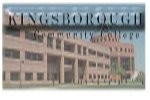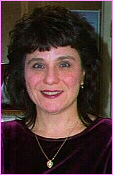
ESL 91 ON THE WEB

 |
DR. LORETTA KASPER'S ESL 91 ON THE WEB |
 |
OUTCOMES OF THE CONTENT-BASED INTERNET PROJECT
STUDENTS' PERFORMANCE ON TESTS OF READING AND WRITING SKILLS
ESL students’ performance on individual tests of reading and writing was enhanced as a result of focus discipline research.
Writing Skills--the pass rate for students who engaged in focus discipline research was significantly higher than the pass rate for all other ESL 91 students enrolled during the same semester of instruction (83% versus 54%; Chi-squared = 6.14; p < .02). <
Reading Skills--the pass rate for students who engaged in focus discipline research was also significantly higher than the pass rate for all other ESL 91 students enrolled during the same semester of instruction (69% versus 46%; Chi-squared = 4.6; p < .05).
Focus discipline research pedagogy improved both reading and writing skills sufficiently so that students were able to pass both reading and writing and thereby allowed to skip a level of instruction
A significantly greater percentage of students who engaged in focus discipline research passed both reading and writing and so were able to skip a level to advance to ENG 93 (59% versus 33% for other ESL 91 students enrolled during the same semester of instruction; Chi-squared = 7.34; p < .01).
STUDENT FEEDBACK
The foundations of the pedagogical method described here require that students themselves play an active role in assessing the efficacy of the learning process.
At the end of the semester, students were asked to complete an online questionnaire requesting their feedback on the overall learning experience.
This feedback questionnaire asked students to:
evaluate the usefulness of doing focus discipline research
evaluate the value of working with the focus discipline group
provide their insights on the experience of writing the individual and group projects
describe what they believed to be the most helpful aspect of the course.
In their responses ESL students indicated a belief that participating in focus discipline research helped them develop linguistic, academic, social, and technological skills.
Specifically, these students mentioned
a greater awareness of their own abilities to conduct research and report findings,
the confidence that comes from being able to map out a project and see it come to fruition,
the pride in gaining important knowledge and insights,
the enthusiasm generated by mastering new technologies, and
the excitement of sharing newly-gained knowledge with peers and teachers.
Students also appreciated being given the responsibility to become the assessors of learning as they discussed and critiqued both their own and others' interpretations of resources. They believed that the classroom methodology and the focus discipline group provided them with a supportive context in which to build the skills they needed to monitor learning and effectively articulate the results of their research. Finally, many students noted that teamwork is a part of many jobs, and they said that learning how to work with other people would be very helpful when they entered the workforce.
Students also extolled the value of using technology in support of their focus discipline research. They mentioned the ease with which they could find information from a variety of sources; they were also cognizant of the necessity of evaluating Internet resources carefully. Many of them indicated that they now viewed all information more critically than they had before; they were less likely to accept something as fact just because it was published, either in print or online. They all believed that the skills they had learned in this class would serve them well in their future classes as well as in the workforce.
The vast majority of the students stated that the most helpful aspects of the course were having the opportunity to do focus discipline projects and to learn how to use the Internet for research. They said that the experience of conducting and writing up the results of extended research would help them in their future college classes. Virtually all of the students noted that experience with technology is now a required skill for college courses and for most jobs. Even students who entered the course with little experience with technology said that completing the various activities in this course made them feel confident in their ability to use technology for a variety of tasks and purposes.